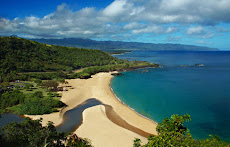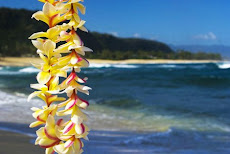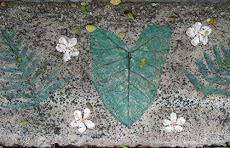By Suzanne Westerly
News From Indian Country 4-08 |  Student environmental activists came from near and far. From left: Anna Rose (Australia) Australian Student Environmental Network; Chelsea Chee (Navajo Nation) Black Mesa Water Coalition, Tribal Campus Climate Challenge (TCCC); Julie Rogers, biologist & daughter of Henk and Akemi Rogers; Cristian Beccera Monroy (Mexico), State Coordinator of GEO Juvenil Mexico, Environmental Commissioner of the Youth Network in Nayarit; Erda Rindrasih (Indonesia) University of Gadjah Mada, Department of Urban and Regional Planning, University of Hawai’i (UH); and Shanah Trevenna, Sustainable Saunders, UH. Student environmental activists came from near and far. From left: Anna Rose (Australia) Australian Student Environmental Network; Chelsea Chee (Navajo Nation) Black Mesa Water Coalition, Tribal Campus Climate Challenge (TCCC); Julie Rogers, biologist & daughter of Henk and Akemi Rogers; Cristian Beccera Monroy (Mexico), State Coordinator of GEO Juvenil Mexico, Environmental Commissioner of the Youth Network in Nayarit; Erda Rindrasih (Indonesia) University of Gadjah Mada, Department of Urban and Regional Planning, University of Hawai’i (UH); and Shanah Trevenna, Sustainable Saunders, UH. | Blue Planet Foundation doesn’t think small. Their mission statement is To Change Our World’s Energy Culture
Hawai’i is a microcosm of our Earth. A location many think of as paradise. A perfect place to completely change our dependence on oil. Hawai’i has abundant natural resources – wind, waves, sunshine and geothermal (volcanic). The island of O’ahu (Gathering Place), opened its arms with aloha to host The Blue Planet Global Energy Summit from April 3rd through the 5th. This was Blue Planet Foundation’s first annual Summit for strategizing as well as beginning to put into effect programs regarding energy issues. The theme running through the conference was that of moving toward change in order to meet our energy needs today and for our future. Positive change requires cooperation, communication, and understanding across various interest groups, industries and national boundaries. It involves all of us. This can be done, according to Blue Planet Foundation, if there is a new vision for the way energy is generated, distributed and used. |  Ramsay Taum, Native Hawai’ian Culture & Sustainability, University of Hawai’i, Co-Founder of Sustain Hawai’i | Philanthropist Henk Rogers founded the Blue Planet Foundation because of his commitment to our environment. As a result of his entrepreneurship in the computer-technology-world, Rogers was able to pull Blue Planet Energy Summit for brainstorming and promoting the use of non-carbon, environmentally friendly, clean energy sources while also talking about the economic benefits of protecting our environment.
The three-day event was taped for two upcoming television shows. DVD’s for academic, legislative and civic use will also be available offering inspiration to people around our world. Henk Rogers believes, “The human imagination has the power and ability to solve our energy challenge.”
Over sixty influential leaders in the environmental and energy fields participated in the Summit. Well-known speakers such as Robert F. Kennedy Jr., environmental attorney, author, activist; Dennis Hayes, Earth Day Founder, Professor, President of the Bullitt Foundation; Dr. Heidi Cullen, scientist, climate expert at the Weather Channel; Ramsay Taum, Director of External Relations and Community Partnerships at the University of Hawa’i School of Travel Industry Management and Co-Director of Sustain Hawai’i; and Dr. Stephen H. Schneider, Nobel Prize winner and professor, were just a few of the speakers that
participated in the Summit.
Student’s Share Their Concerns
An important component in the Summit, was that of students from around the world. It’s vital that the younger generations have a prominent voice at all discussions – they are the future leaders, and have much to offer.
The student environmental activists from near and far were: Chelsea Chee (Navajo Nation), Black Mesa Water Coalition and who works with the Indigenous Environmental Network; Erda Rindrasih (Indonesia) University of Gadjah Mada, Urban and Regional Planning, UH; Cristian Beccera Monroy (Mexico), State Coordinator of GEO Juvenile Mexico, Environmental Commissioner of the Youth Network in Nayarit; Anna Rose (Australia) Australian Student Environmental Network; Silvia Gianetti Barber, Natural Resources and Environmental Management, UH; and Shanah Trevenna, Sustainable Saunders, UH.
During a panel presentation Gal Luft, with Institute for Analysis of Global Security, declared nuclear energy safe and clean. Chelsea Chee, (Dine’) Tribal Campus Challenge Coordinator with Black Mesa Water Coalition and Indigenous Environmental Network, took issue with his statement. “I don’t see nuclear energy as clean energy.”
Chelsea Chee expressed her first hand knowledge of the pain, suffering and deaths the Navajo people continue to endure because of the toxic legacy left behind by corporations who mined for uranium on the Navajo Nation for almost 40 years, beginning in the late 1940s. Sites never cleaned up, tailings blowing in the wind, entering their water supply. In 2006 the Navajo Nation voted to ban uranium mining on their land. The majority of those at the Summit agreed with Chelsea Chee.
Not Just Talk, but Action!
Blue Planet Foundation has teamed up with Evolution Sage to create an innovative Energy Returned on Energy Invested Program with Nanakuli High School.
Kevin Vaccarello, Director of Evolution Sage, Founder and Co-Director of Sustain Hawai’i, presented a brief overview of the Energy Invested Program’s hands-on approach that will teach the students at Nanakuli High School how they can personally affect change in the real world. Kevin Vaccarello explained, “Hot water and lighting account for about 50 percent of a homes energy use, so we said, let’s look at all the best solutions that are out there.” Based on those facts, the creation of a learning experience evolved for the benefit of the students. They will be asked to submit a “Walk Story with Blue Planet” Essay via Blue Planet’s website and explain what the energy, water and money saved means to them, their family, their community and their world. The best 20+ essays will win a partial energy and water efficiency retrofit for their homes in the way of LED bulbs, faucet aerators, and low-flow showerheads (they’re better than they used to be).
Their project isn’t over yet!! After having their homes retrofitted, the Nanakuli High School students will track the difference in energy and water consumption from the previous year to determine how much energy, water and money their family is saving. The families will pledge to use those savings to further support the student’s education or use it for more sustainability-oriented solutions. Each household should save nearly $300/yr for over 20 years, which cumulatively for all households is more than $150,000 over the lifetime of the LED bulbs, low-flow showerheads and faucet aerators.
By actually participating in bettering ones life, the students as well as their teachers, will bring a new perspective to their energy uses, and the knowledge they have acquired will ripple through their family and community in many positive ways.
Nanakuli’s Principal, Darin Pilialoha, is an enthusiastic supporter of the program, “I see this is a great opportunity not only for the students to participate, but also for the school to participate in.” Perhaps the program will generate even more innovative energy ideas from the students themselves. Even better, this pilot program can be used in schools throughout the country and world.
Organic Farming
Although not a central issue during the conference, organic farming is another sustainability issue of grave importance. Solomon Enos, artist, and cultural activist enjoys teaching students about their cultural ties to Hawai’i as the project assistant of the five-acre Mala ‘Ai ‘Opio (MA’O) nonprofit farm. The farm is run by the Waianae Community Re-Development Corporation with funding from the Office of Hawaiian Affairs. Solomon Enos is the son of farmer and paniolo (cowboy) Eric Enos.
Hawai’i looking Forward
Hawaii can play a lead role in advancing the use of the many alternative energies presently available to us. As people voice their commitment to change, the political and business leaders will listen, and help bring funding to environmentally sound energy programs.
Here in Hawai’i, the world’s most remote island chain, we are extremely vulnerable to possible interruptions in our supply chain so it’s vital for us to wean ourselves from a dependence on oil while thoughtfully and earnestly making the change to renewable energy use while thoughtfully conserving energy in our everyday uses.
“In Hawai’i we can easily measure our fossil fuel use, just by counting the tankers that come in,” Henk Rogers noted. Because of this, he feels Hawai’i is the perfect place to measure our change in energy usage. The question he asks is why aren’t we using our natural resources such as wind, waves, geothermal and solar.
“The human imagination has the power and ability to solve our energy challenge.”
On The Net:
http://www.blueplanetsummit.org/
http://www.evolutionsage.com/
http://hawaiianislandsphotojournal.blogspot.com |




































